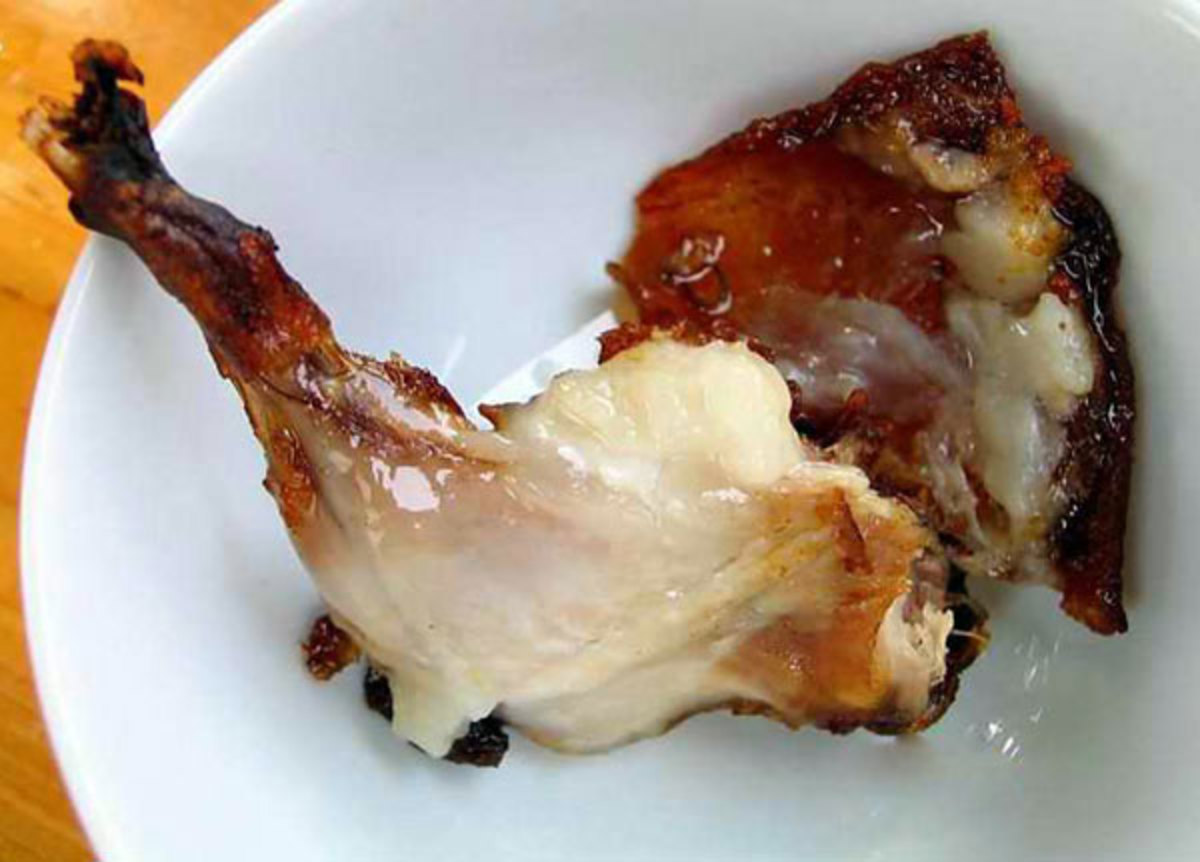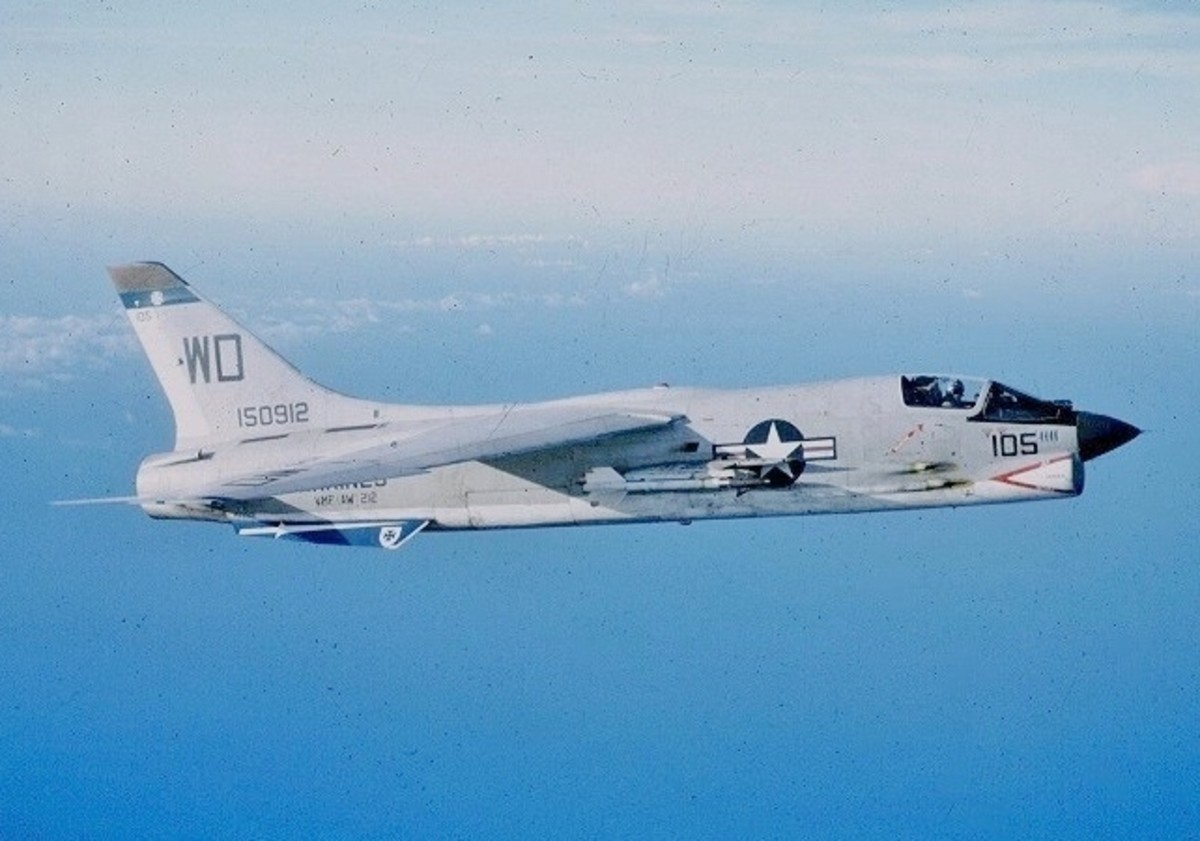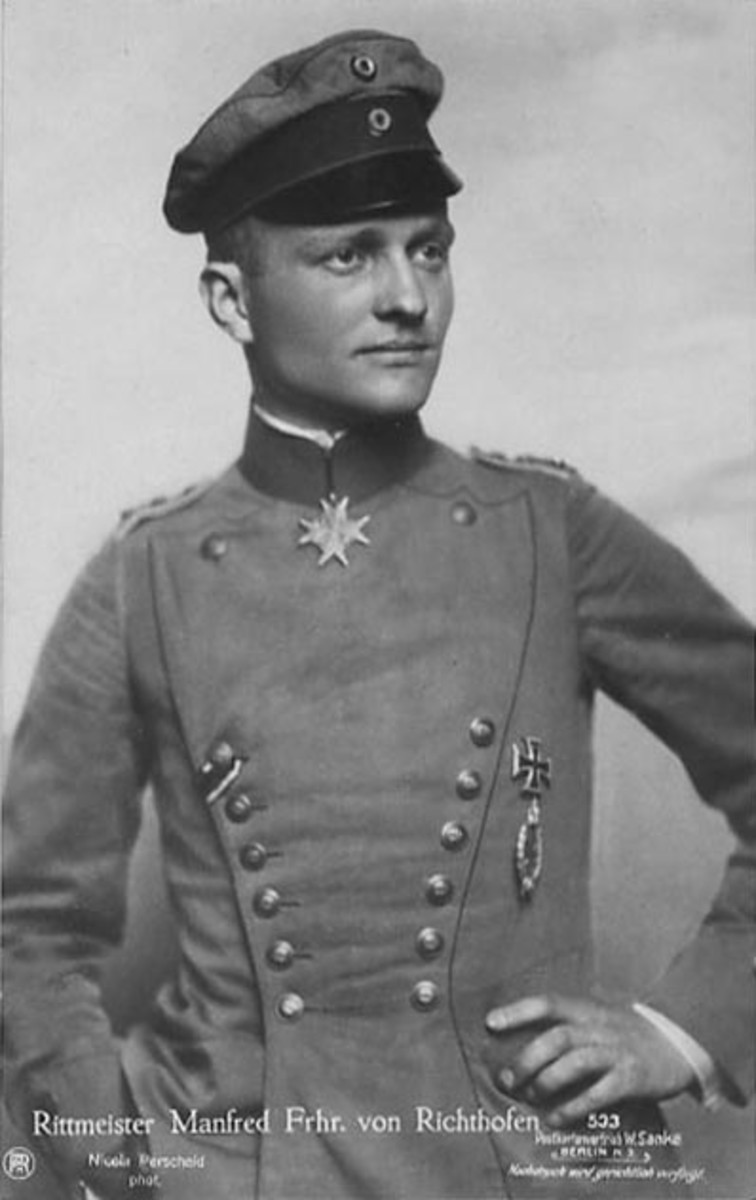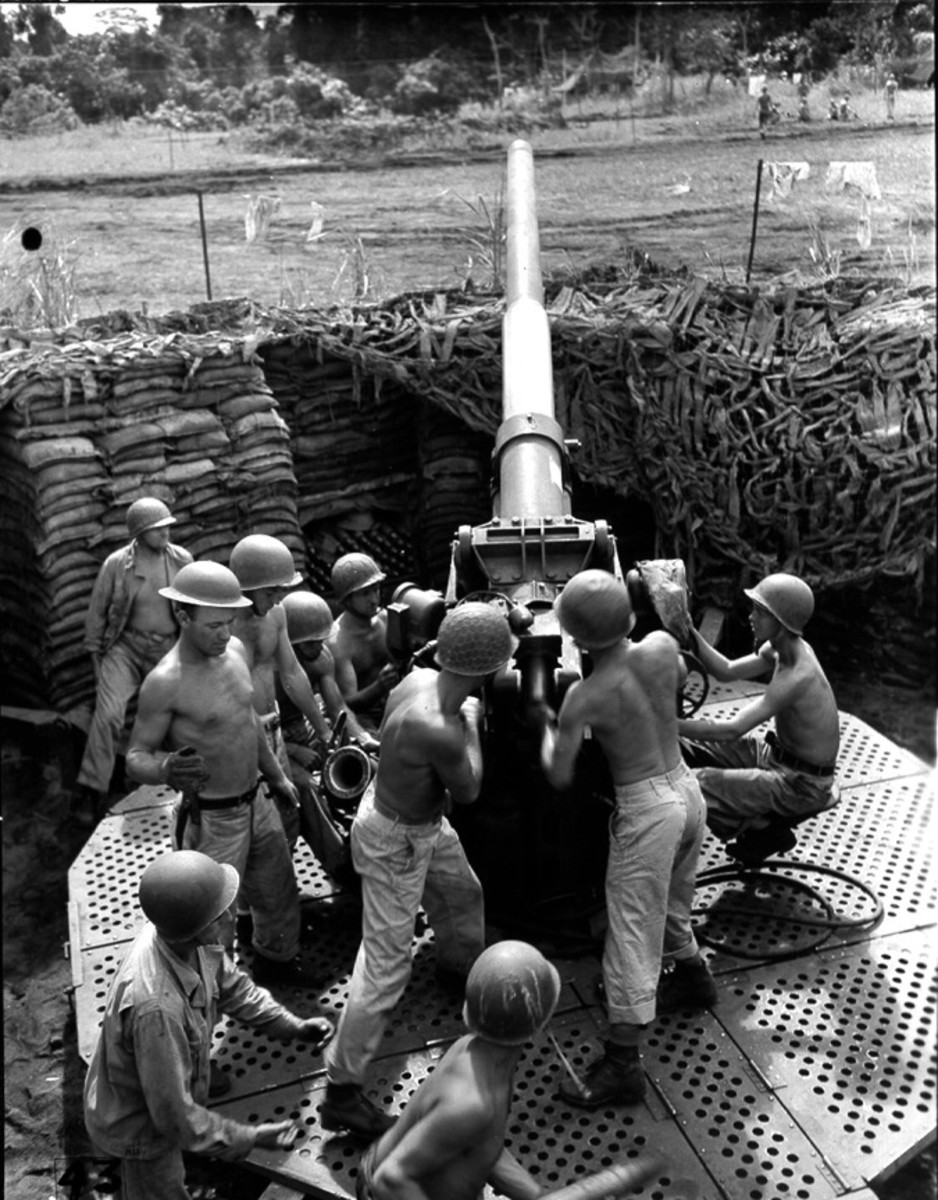Ooh - Tastes Like Chicken Soup! and Other Practical Jokes
Practical Jokes Make for Good Stories Later
Like practically everyone else in the world, I enjoy hearing a good joke and, when I can remember, them, telling one as well.
The problem is that most of the jokes I hear or remember are usually not only widely known but can also be found on hundreds of websites and would thus not meet the requirement that the material in the hub be original.
So, for inspiration I checked the definition of the word joke at Dictionary.com on the web. Nine definitions were given with the fifth being practical joke which, instead of having a definition with it was linked to a separate entry which opened to a page reading:
practical joke -noun - a playful trick, often involving some physical agent or means, in which the victim is placed in an embarrassing or disadvantageous position. [Origin: 1840-50]
Practical Jokes in the Military
While I haven't played that many memorable practical jokes myself, I have seen and heard quite a few and have gotten quite a few laughs retelling them over the years. So, here are some of the more memorable ones, most of which I can't claim credit for originating, but am fairly certain that this is their first time in print.
As I described in my Hub Kilroy Was Here, the military is always a great place for practical jokes and many of my favorites come from the time I spent doing my required military duty after college and from tales I have heard from the experience of others in the military.
In a previous Hub entitled Don't Get Mad - Get Even! I related the story about how my father, while serving in the Army during World War II, cleverly reversed a practical joke when his barracks mates attempted to short sheet him. In that same Hub I also related a tale about a trick I played a trick on a nuisance from down the hall in the college dorm I lived in who had a habit of just walking into any room where the door was open and helping himself to any food that was in there.
While in Air Navigation School at, the now closed, Mather Air Force Base in Sacramento, California during the Vietnam War all of our teachers had done tours as navigators flying missions in Southeast Asia. Many of the best tales of practical jokes were ones I heard from them.
Flying a USAF C-141 Transport From the Rear With a Ball of Twine
During the Vietnam War most of the troops traveled to Vietnam by air, being flown from Travis, AFB in California in C-141 transports.
One of the pilots who routinely flew the California to Vietnam route had a trick he used to play to lighten the tension in the plane as it headed west toward the war zone.
A couple of hours into the trip, the pilot would contact the crew chief in the back of the plane on the intercom and have him identify a green, newly commissioned Army 2nd Lieutenant among the passengers. Then, taking a couple of rolls of sturdy twine, the pilot tied the ends of each roll to the back of his seat and unwound the balls of twine as he backed out of the cockpit and down the aisle of passengers, stopping when he reached the designated 2nd Lieutenant.
With the eagles associated with his rank of Lt. Colonel, clearly visible on his flight suit, the pilot would lean over and explain that he had to use the head (bathroom) in the back, and not wanting to disturb the sleeping co-pilot asked the Army 2nd Lieutenant if he would mind holding the two balls of string, which were tied to the controls in front, and hold the plane on course for a few minutes.
The 2nd Lieutenant knew it was a prank but he also knew that the proper response of a 2nd Lieutenant to a request from a Colonel was a simple Yes, Sir!
The 2nd Lieutenant would dutifully take the balls of string and hold them tight until the Colonel disappeared. He would then relax and let the string go slack.
Unbeknownst to the Lieutenant, the Crew Chief was observing in the back and reported the slack to the co-pilot who began to move the control stick to make the plane appear to be going out of control. The Lieutenant would instinctively pull the twine taunt and the co-pilot would stabilize the plane.
After a few moments the Lieutenant would experiment by slowly easing up on one of the strings of twine. The action would be reported to the co-pilot who would begin to turn the plane in the direction of the taunt string.
After experimenting a couple more times the Lieutenant would begin to believe he really was controlling the plane. Once the pilot and crew chief finished laughing in back the pilot would stroll down to the Lieutenant, who was now hanging on to the balls of twine for dear life, thank him and returned to the cockpit with the balls of twine leaving the 2nd Lieutenant with a story to tell about how he once flew a C-141 from the back of the plane.
Ooh - Tastes Like Chicken Soup!
Despite the growing numbers of women in the military, the military draft saw too it that there were far more men than women in uniform at the time of the Vietnam war. Even though the military was recruiting both men and women, flight crews and infantry remained male only occupations. Put men together in a high stress environment with no women present
This brings us to the story of the pilot of a C-130 and the trick he and his crew used play on the troops they transported to and from battle zones in Vietnam. One route frequently flown involved a bumpy flight over a small mountain range and, as we all know, bumpy rides in airplanes can result in air sickness.
So, along with his lunch, the pilot would frequently include a can of cream of chicken soup. On the return flight he would try to make the ride over the mountains as bumpy as possible. Then, just before landing he would heat up the soup.
While taxing after landing the pilot would pour the contents of the soup into an air sickness bag. Upon bringing the plane to a stop in its assigned parking spot, he would make himself look as disheveled as possible and stumble out of the cockpit assuming the look of a man needing to find a bathroom as soon as possible.
The co-pilot would follow him out with the air sickness bag. With a look of revulsion, the co-pilot would hand the bag with its warm contents to the navigator who took it as delicately as possible and handed it on to the nearest passenger with instructions to pass it back to the crew chief.
Holding their noses, the soldiers quickly handed the warm bag down the line until it reached the crew chief.
Taking the bag, the crew chief sniffed the contents, then stuck his finger into the bag, pulled it out, licked it and exclaiming, Ooh! Tastes like chicken soup!
At this point all of the passengers promptly lost their lunches, leaving it to the ground crew to come in and hose down the inside of the plane.
As I said at the beginning, when alone with other men and no women present, conversation can become raunchy. Air navigators are aircrew members and since women were not allowed to serve as aircrew members in those days, both instructors and students, which I was, were male so stories could be gross.
When I related this story to my father, brother, and brother-in-law during, all of whom enjoyed it, at a family get together at my sister's home, my sister happened to be within earshot in the other room and over heard it. However, in addition to my sister, my then five year old nephew also overheard it and thought it sounded good although he didn't understand the humor and didn't remember the whole thing. He did, however, remember the Ooh! Tastes like chicken soup! punch line.
About every five minutes for the rest of the afternoon my nephew
would point his index finger downward, the bring it to his mouth as if
he was going to lick it and exclaim Ooh! Tastes like chicken soup! much
to my sister's disgust.
Employing a Trick Learned From a World War I Novel
Anyone who has ever served in the military whose ranks are filled through conscription comes out having learned at least two very important lessons. The first one is Never volunteer and the second is You can never get in trouble for following procedures.
This last lesson is very important in every government directed endeavor - even if you know that following the rules will lead to disaster, you will not be punished for following the rules. But, if you deviate and show initiative and things don't work out perfectly, you will get in trouble.
This theme is best illustrated in the novel The Revolt of Gunner Asch by Hans Kirst. In it Asch, a foot soldier in the German army in World War I, takes initiative on a small detail and is reprimanded for not following procedures. He then decides to follow procedures to the letter and ends up causing so much havoc that the entire western front is in danger of collapsing. Officers and generals improvise as best they can and save the day. But, at the end of the day Asch is rewarded for following procedures while the generals are punished.
Well I put this trick to good use once early in my banking career.
The Federal Government had come out with new rules requiring the reporting of loan applications. The rules required that applications be numbered in the order taken and reported in that order.
However, being basically ignorant of the mortgage loan application process they didn't realize that many loan applications tended to drag on for weeks or months while others received an approval or decline immediately.
This took place during the 1970s and the Wang 2200 Mini-Computer system that I was using to track loan information and print documents had a 10 megabyte disk (which was huge for those days) and could not hold all of the information needed to produce this report as required.
So, I studied the procedures and saw that while we had to report the loans in order but only after a final decision had been made, they did not specify the number of loans per page or even require that one page had to be filled before beginning the next page.
Common sense, of course, dictated each page be filled before starting the next. Abandoning common sense and following the letter of the procedures from Washington, not only solved the problem of lack disk storage, it also offered cover for the mistakes I knew were in the data.
As is their usual habit, Congress had produced a vaguely worded law that satisfied the various special interests and had left it to the bureaucrats in the U.S. Treasury Department to write directions for implementing the law. Treasury took its time and released the final complex rules on the Friday afternoon just before the Monday on which the law took effect. While I did the best i could create a system to produce accurate data for the report, there was not way I could accomplish this while, at the same time, maintaining a production level that allowed our customers to get their loans in a timely manner.
Since we had to print the loan applications for each of our twenty branches separately, I instructed my assistant to print the list of completed loan applications for each branch whenever we needed to free up space on the disk regardless of the number of loans per page.
This, of course, resulted in many of the pages of the report having only one or two loan applications listed which caused the final report to consist of three binders, each about ten inches in depth and weighing about four pounds or more.
When the bank examiners visited and one came and asked for the loan application report I handed him the first copy of the four pound report and watched his jaw fall. As he started to walk away I called him back and gave him the second volume. As he began to turn away again I called him back a third time and dumped the final volume on top and then watched as made his way back to his work area, walking bent over under the twelve pound load of paper I had just dumped upon him.
As I had expected, the examiner had never bothered to read the report, probably just skimming a couple of pages. I know this because, a few days later, I was called to my supervisors office for a meeting with him and the bank examiner to discuss the report I had given him. I listened quietly as the bank examiner explained that his report was going to show that while I had observed the letter of the regulation I had failed to follow the spirit of the regulation. With a somber look on my face and a contrite voice, I carefully explained that, given the limited space on our computer disk, I had no choice but do produce the report in the manner that I had given him.
My supervisor then explained that new, larger, disk storage (eighty megabytes) was now available and that our organization would be purchasing this for our system. His ego satisfied, the examiner left and, as passed through the door and I rose to follow him, I received a good work wink from my supervisor.
This content is accurate and true to the best of the author’s knowledge and is not meant to substitute for formal and individualized advice from a qualified professional.
© 2008 Chuck Nugent








